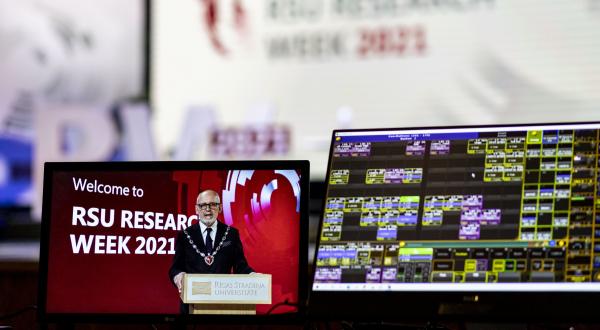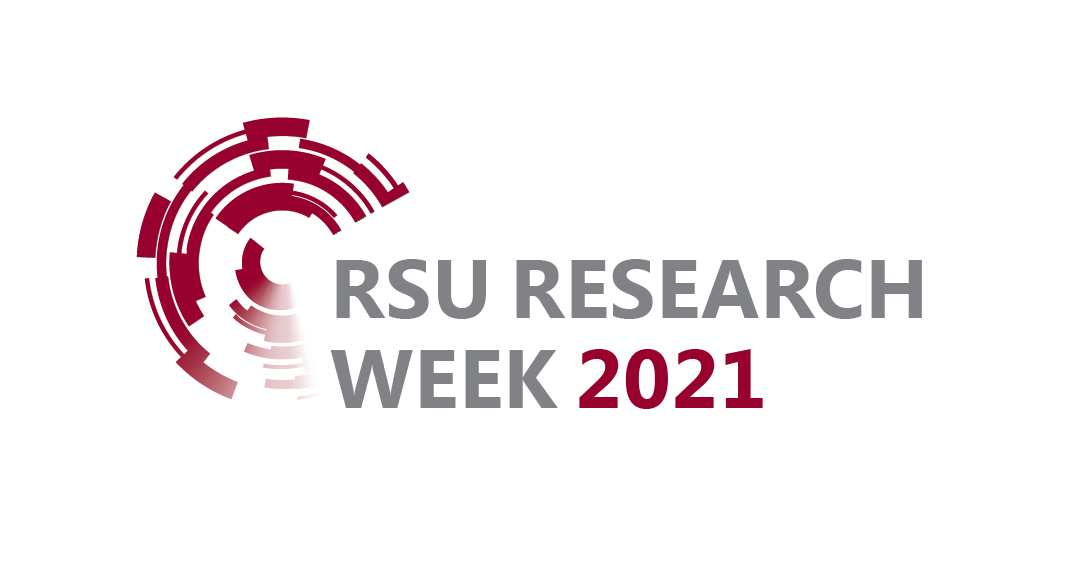Will We Be Able to Predict and Prevent Diseases Before They Occur In the Future?
A Bioinformatics Research Unit has been established at Rīga Stradiņš University (RSU). Bioinformatics is often discussed at the RSU Doctoral School as a promising field of research. Scientific institutes at RSU store various types of biodata. We asked Baiba Vilne, the Head of the unit, why this field of research is gaining in importance and drawing increased interest from scientists.
 Photo from private archive
Photo from private archive
A lot of attention is currently paid to bioinformatics. The circle of researchers who work in bioinformatics is expanding and it is gaining more and more importance also at RSU. What is the nature and significance of bioinformatics today? Why is the focus on it growing?
Although the use of bioinformatics is expanding, its essence has remained the same. It is a branch of science that deals with the creation of various tools and their use in analysing biomedical data. At the same time, the role of bioinformatics has changed greatly. It has grown significantly over the last ten years. One of the reasons for this is the rapid development of modern technologies, which has made it possible to obtain comprehensive molecular information from large sample sets in a relatively short time and at reasonable prices. This has, in turn facilitated the realisation of so-called personalised medical vision.
Namely, the introduction of diagnostics and treatments based on genetic information, for example, which would be tailored to the individual needs of each person.
What would biomedical research give the public? How would it affect public health and treatment?
On the one hand, long-term personalised medicine sounds like fiction, but on the other hand, it is very necessary for people. Personalised medicine requires that we collect comprehensive data on each individual from a very early stage, possibly from when they are infants. This data would be molecular, clinical, environmental, and lifestyle-based.
This data would be collected and analysed using artificial intelligence (AI) in order to enable us to predict risks of possible diseases in time.
It would also be possible to predict various environmental and lifestyle factors that could point to the possibility of developing a certain disease. We could help prevent or reduce the development of diseases. If it is not possible to completely eliminate a disease, then algorithms could be used to find the most suitable treatment for individual patients.
Each individual’s biological and medical history and the database created around them would be compiled and accumulated every year, starting from birth. It would be possible to make decisions later in life based on this database and see if the person is at risk of an illness.
The aim is to move from a “one size fits all” approach to an individual-centred medical model. For now, this is a vision for the future, a long-term goal that we are pursuing.
Could we choose the best treatment options?
The health care system is shifting towards early diagnosis or even prevention in order to avoid a disease altogether. We have the opportunity to intervene before a disease occurs. So it is also a matter of improving the general physical and mental well-being and quality of life of the public.
Is a large database necessary to conclude whether a person is at risk of a certain disease?
It would start with a large biobank where individuals’ biological samples would be stored. A large digital database would be created either afterwards or at the same time. This could initially be done locally, but in the future it should encompass data on all genders, ages, and different ethnic groups on a global scale.
A constantly growing database would gradually develop, covering individuals throughout their lives. AI would use this vast amount of data to predict possible diseases and treatments.
You mentioned AI. What are the possibilities of AI in terms of the biobank?
We are talking about a very large and complex amount of data. Although a human is irreplaceable as an expert and it will still be important to have a doctor involved, specialists need the help that AI can provide, and furthermore, the algorithms learn from experts in the field.
How could AI be involved in determining an individual's risk for certain diseases?
In very large groups of patients we have seen that certain genetic variants are associated with the risk of coronary artery disease, for example. A healthy person could come to a doctor, but sequencing their genome could reveal that certain genetic variants can be found that increase their risk of coronary artery disease. The doctor can then advise them to take preventive measures, such as changes in their lifestyle.
A Bioinformatics Research Unit has been established at RSU, but why was it created?
Because of the growing importance of bioinformatics in biomedicine in the context of personalised medicine. RSU researchers collect more and more so-called big data through their projects, and they need support in processing and analysing this data. This is what we bioinformatics scientists do.
Could you say that human biodata is already being collected?
The amount of data is gradually but steadily increasing. We collaborate with the Institute of Oncology and the Scientific Laboratory of Molecular Genetics, analysing mainly human genome data in the context of breast cancer and atrial fibrillation. We are also involved in the National Research Programme for the mitigation of the consequences of COVID-19, where together with the Latvian Biomedical Research and Study Centre we perform phylogenetic analysis of the SARS-CoV-2 virus. Looking internationally, we have just received funding from the ERA PerMed for the Progress project, which will employ AI methods.
You lead classes at the RSU Doctoral School informing researchers about bioinformatics. How can researchers be encouraged to become more involved?
In my lecture cycle I address the importance of multiomics and bioinformatics in personalised medicine. Each lecture might be dedicated to one or two types of omics data. I am actively trying to motivate researchers to get involved in bioinformatics. But of course you should ask those who come to my lectures if I have been able to motivate and inspire them.
Using AI, bioinformatics will make its greatest contribution to society in the future when data is collected in sufficient amounts to draw concrete conclusions about possible human diseases. But this future is real and it is well known what researchers need to do to achieve this.
Related news
 RSU Research Week Breaks Attendance RecordGeneral, RW Deep Dive
RSU Research Week Breaks Attendance RecordGeneral, RW Deep Dive
